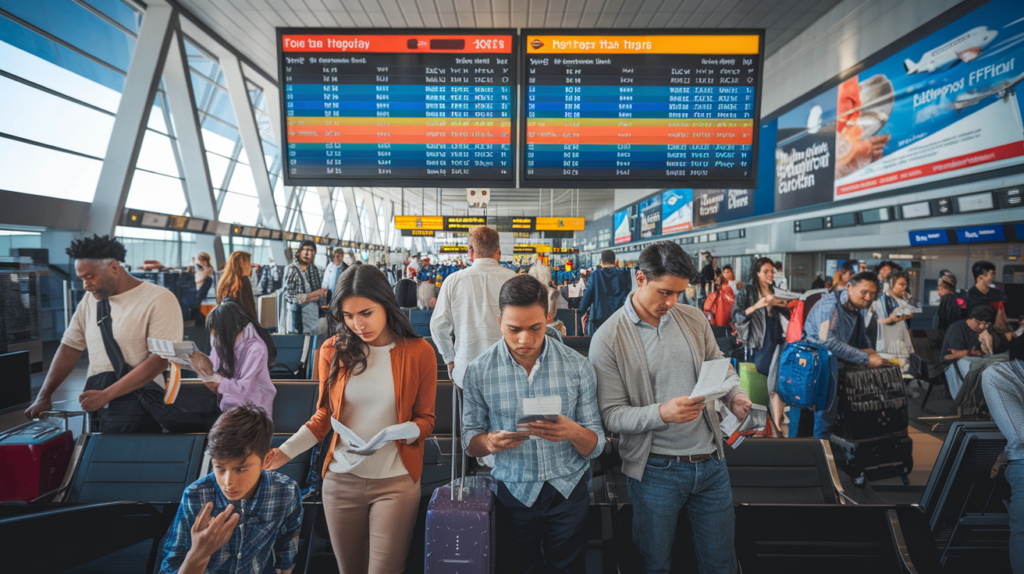The International Air Transport Association (IATA) strongly criticizes the increase in Chirac tax on airline tickets. Expected to generate 3.7 billion euros, the increase is intended to step up collections for international solidarity. However, IATA is calling the measure a disaster for the aviation industry, arguing that it will increase ticket costs by between 1.50 and 3 euros in economy class, and between 9 and 18 euros in higher classes. Airlines are concerned that this additional burden will hamper the sector's growth and alter the accessibility of air travel.
The increase in Chirac taxannounced by the French government, has provoked strong reactions from the air transport industry. The International Air Transport Association (IATA) has denounced the decision as a major blow to the aviation sector. According to IATA, this increase could hinder the sustainable development of the sector and affect the economy of airlines already in difficulty. This article explores the implications of this decision and the criticisms levelled by the industry.
IATA opposes tax increase
The government's recent decision to increase the solidarity tax, better known as the Chirac taxThe new surcharge on airline tickets is generating considerable controversy. IATA, which represents the world's airlines, strongly criticizes the increase, calling it a "disaster for aviation". The tax increase could lead to higher costs for passengers, ranging from €1.50 to €3 for economy class flights, and from €9 to €18 for higher classes. IATA fears that this cost increase could affect already fragile post-pandemic demand.
Economic impact on airlines
The introduction of Chirac tax was initially intended to finance the fight against AIDS. However, according to some sources, such as the ChallengesOn the one hand, suspicions of fraud have arisen with regard to the management of these funds. On the other hand, the planned increase could generate up to 3.7 billion euros, a figure which, according to the Governmentis essential, but is being called into question by the aviation industry. Airlines fear that this additional financial burden will push them into an even more precarious economic situation, even compromising the competitiveness of European carriers vis-à-vis their international competitors.
The consequences for the climate and social justice
In addition to the economic impact, IATA also raises sustainability concerns. Increased taxation could undeniably complicate efforts to allocate sufficient resources to the development of sustainable aviation fuels. According to an analysis by La TribuneThe excessive reliance on these fuels without adequate financial support will prove costly. The introduction of this tax also raises questions of social justice, posing the challenge of making air transport accessible to all under fair conditions.
The airlines' response
Numerous companies, grouped together within the syndicate Scarahave openly expressed their concerns about the tax increase. They question the underlying economic rationale and point to the potential impact on tourism and employment. This new tax burden could hamper airlines' recovery from the pandemic, as expressed in a report by the French National Assembly.

On the same theme
Air tax hike: what impact will it have on travellers' budgets?
In 2025, the increase in the solidarity tax on airline tickets, resulting from the adoption of France's budget, will increase the cost of air travel. This tax, tripled by the 2025 budget, aims to bring in...
Brazilian government backs union between GOL and Azul to boost airline industry
The Brazilian government has voiced its support for the merger between Gol and Azul airlines, an encouraging move to strengthen the country's aviation industry. Due to financial difficulties, such as Gol's insolvency proceedings in the United States,...
Boeing explores solutions to make its cabins more recyclable
Discover how Boeing is taking innovative initiatives to make its aircraft cabins more environmentally friendly. By exploring recycling solutions, the aeronautical giant is committed to a sustainable and responsible approach. Jeanne Martin, a writer specializing in sustainable development...







